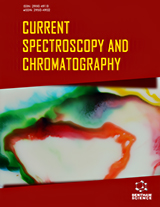Abstract
In this paper, platinum nanoclusters (PtNCs) were synthesized by less sophisticated equipments with low cost and tedious procedures, and then applied to construct a simple electrochemical hydrazine sensor rapidly within the applied potential. PtNCs were proved to have advantages over platinum nanoparticles (PtNPs) in modifying glassy carbon electrode (GCE) for electrochemical and sensing applications. The sensor’s electrochemical activities toward several compounds (ascorbic acid, glucose, sodium nitrite, L–cysteine, citric acid, potassium chloride, hydroquinone, and bismuth nitrate) were investigated. Furthermore, hydrazine was used as a typical analyte to exhibit the sensing performance of PtNCs. It was found that PtNCs modified GCE presented two linear detection ranges and low detection limit for hydrazine detection.
Keywords: Electrochemical sensor, hydrazine, platinum nanoclusters, platinum nanoparticle.





























